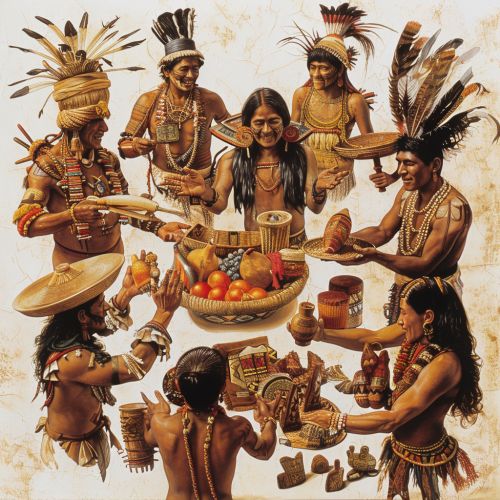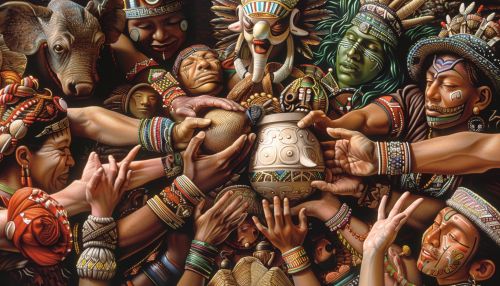Reappropriation
Introduction
Reappropriation, also known as cultural reclamation, is a cultural process by which a group reclaims terms or artifacts that were previously used in a way that disparages, discriminates against, or excludes them. It involves the adoption of a negative word or symbol by the targeted group, transforming it into a positive or neutral symbol. This process can occur in various cultural contexts, including language, art, and social movements.


Language Reappropriation
Language reappropriation is a significant aspect of this cultural process. It involves the reclamation of derogatory terms, slurs, or other linguistic forms that have been used to marginalize or oppress a group. This process is often driven by the group's desire to assert their identity, challenge stereotypes, and resist discrimination.
For example, the term "queer" was initially a pejorative term for homosexuality but was reclaimed by the LGBTQ+ community and is now used in a positive or neutral context, such as in queer theory or queer studies.
Artistic Reappropriation
Artistic reappropriation is another form of this process, where artists reclaim cultural symbols, styles, or themes that have been used to stereotype or marginalize their group. This can be seen in various art forms, including visual arts, music, literature, and performance arts.
For example, in the visual arts, artists may reclaim cultural symbols or styles that have been appropriated by dominant cultures and use them in a way that challenges stereotypes or asserts their cultural identity. This can be seen in the works of many contemporary Indigenous artists, who incorporate traditional Indigenous symbols and styles in their works to challenge cultural appropriation and assert their cultural identity.
Social Movement Reappropriation
Reappropriation also plays a significant role in social movements, where groups reclaim symbols, slogans, or actions that have been used to marginalize or oppress them. This process is often driven by the group's desire to assert their collective identity, challenge power structures, and resist social inequality.
For example, the Black Lives Matter movement has reclaimed the slogan "Black Lives Matter" and the raised fist symbol, which have been used to marginalize and oppress Black people, and transformed them into symbols of resistance and empowerment.
Challenges and Controversies
While reappropriation can be a powerful tool for resistance and empowerment, it also raises various challenges and controversies. Some argue that it can reinforce stereotypes and discrimination by perpetuating the use of derogatory terms or symbols. Others argue that it can lead to cultural commodification, where cultural symbols or practices are commercialized and stripped of their original meaning.
Moreover, the process of reappropriation is often contested, with debates over who has the right to reclaim a term or symbol and how it should be used. These debates often reflect broader power dynamics and conflicts within and between cultural groups.
Conclusion
Reappropriation is a complex and contested cultural process that involves the reclamation of terms, symbols, or practices that have been used to marginalize or oppress a group. While it can be a powerful tool for resistance and empowerment, it also raises various challenges and controversies. As such, it is a significant area of study in various disciplines, including linguistics, cultural studies, and sociology.
